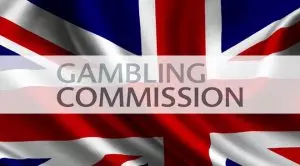 The UK Gambling Commission (UKGC) has officially announced the implementation of a new licensing conditions for casino and gambling operators within the country. The watchdog is supported by the British government and is focused on keeping the UK gambling business clean and making gambling fair and open. The UKGC is also responsible for protecting both children and vulnerable people and keeping crime out of gambling within the country.
The UK Gambling Commission (UKGC) has officially announced the implementation of a new licensing conditions for casino and gambling operators within the country. The watchdog is supported by the British government and is focused on keeping the UK gambling business clean and making gambling fair and open. The UKGC is also responsible for protecting both children and vulnerable people and keeping crime out of gambling within the country.
After a consultation with some stakeholders has been held, the regulatory body revealed that there will be a requirement for the licensed operators to keep their advertisements away from appearing on the so-called “pirate” websites.
The new license condition will require from licensees to make sure that no digital advertisements of theirs are placed on pirate websites. Operators will also be required to take measures to make sure that no third parties and affiliates related to their licensed activities will be involved in placing adverts on such websites.
The truth is that currently, there is a great number of websites that provide unauthorised access to copyright content and are publicly available. All of them are dependable from various types of advertising in order to generate revenue, and the large number of users help them make really significant profits on a monthly basis.
This is exactly the reason why copyright holders have been trying to find a way to make advertisers stop backing such websites, putting them under immense pressure. According to some entertainment companies, if such advertisements are removed from pirate websites, the latter will no longer exist.
Some consultations regarding licensing conditions amendments were initiated by the Gambling Commission in September 2015. The watchdog has been working on ensuring that gambling operators advertisements would not appear on websites that offer unauthorised access of users to content protected by copyright. The consultation was made public in May 2016, and was followed by a completing consultation in July.
And regardless of the fact that all participants reached an agreement that gambling operators should not advertise on pirate websites, there was serious disagreement on the ways to achieve that. Things were made even harder due to the fact that some operators indicated they use affiliates for placing advertisements on such websites for them. This could make monitoring such affiliates not only difficult, but also expensive in case that special software is designed.
The UK Gambling Commission explained that the ads uploaded on pirate websites are not criminal, but they seriously contribute to their funding, which associates gambling with crime. The regulatory body said that it is to take various actions because of the situation’s seriousness. This is exactly why a “social code” implementation was rejected, and a new licensing condition is to probably be introduced in order to make sure that gaming operators’ marketing does not appear on websites offering unauthorised copyright content.
- Author


